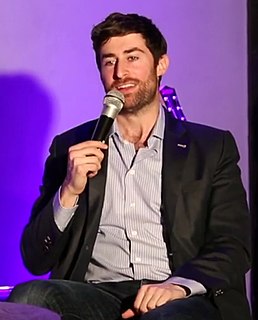A Quote by Tim Sweeney
Augmented reality will drive all things like chat, social networking, photos, videos, organizing data, modeling, painting, motion capture, and visual programming. Every form of computing will be combined together and unified in a single platform.
Related Quotes
We face two overlapping challenges. The first concerns real-time court-ordered interception of what we call 'data in motion,' such as phone calls, e-mail, and live chat sessions. The second challenge concerns court-ordered access to data stored on our devices, such as e-mail, text messages, photos, and videos - or what we call 'data at rest.'
I've played pretty much every single-player RPG there is, has been, ever will be. But as far as the MMOs go, especially with the voice chat, it becomes like hanging out with your friends in a chat channel, and you're playing at the same time. So it becomes a lot more social than people would probably think.
I think a bigger difference with social media is going to be things like the impact Instagram will have for historians. For the longest time, we had no images of the past. And then when we had the advent of the camera, we had a record of the things people chose to photograph, which, for a while, were portraits of your family, a new building we built, or a really big horse. Well now we have images of everything. That will be the biggest difference I think - that we will have a visual record of this reality in a way that will be completely covered.
Men are noisy, narrow-band devices, but their nervous systems have very many parallel and simultaneously active channels. Relative to men, computing machines are very fast and very accurate, but they are constrained to perform only one or a few elementary operations at a time. Men are flexible, capable of "programming themselves contingently" on the basis of newly received information. Computing machines are single-minded, constrained by their "pre-programming."
Instagram is a media company. I think we're about visual media. I explain ourselves as a disruptive entertainment platform that enables communication through visual media. I don't think it's just photos. There's a reason we don't allow you to upload photos on the Web as albums. It's not about taking all these photos off your DSLR putting them into an album and sharing them with your family. It's not about that. It's about what are you up to right now out in the real world, how can you share that with everyone.

































